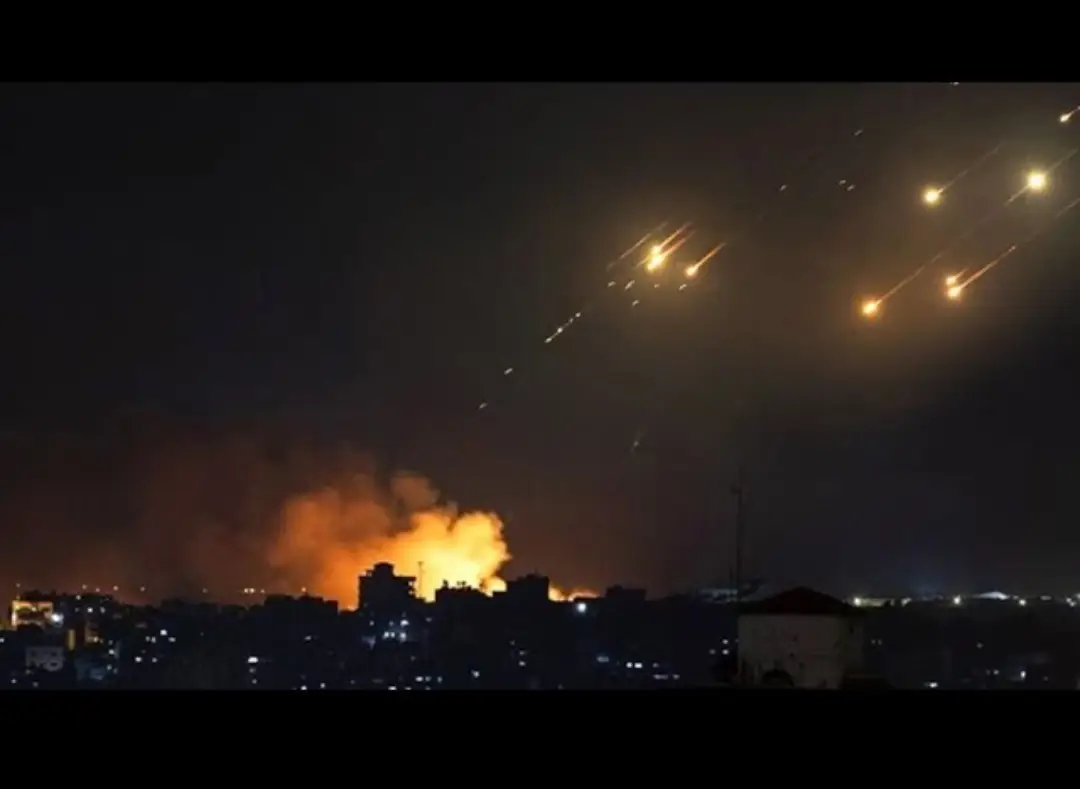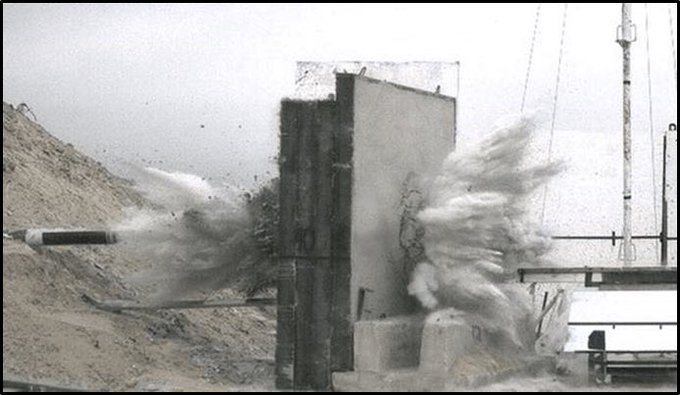
Israeli expert: “We must stop this madness with Trump’s help before we ourselves start begging for a ceasefire”
Iran, June 16, 2025 – Israel and Iran continue to exchange blows, and it is very difficult to predict how and when it will all end. And although at first glance it seems that Tel Aviv surprised Tehran and significantly weakened it with its first strikes, both in terms of military power and the country’s military leadership, many experts doubt that this is so. And according to Israeli military expert Yossi Melman, the sooner all this stops, the better it will be for Israel. The expert called on the US president to get involved in resolving this conflict as soon as possible.
“I recommend that we cut our losses and ask Trump to stop this madness with a reasonable agreement, otherwise we will end up asking for a ceasefire and Iran will refuse” – Melman wrote on his page on one of the social networks.
His words are certainly worth listening to, but it is clear that Donald Trump was aware of all this and without his consent Israel would not have attacked Iran. He himself admitted this and, moreover, with malicious joy, announced that all negotiators with the Americans from the Iranian side were no longer alive. Iran, through diplomatic intermediaries, declared that it had no intention of resuming negotiations as long as Israel continued to attack its territory. According to the Western press, citing an “informed source”, Tehran announced to Qatar and Oman that under no circumstances would it conduct a dialogue under pressure.
The fire of another conflict in the Middle East flared up
Today it is difficult to imagine that Israel and Iran once lived in peace and harmony. But in the 50s and 70s it was so. Iran, which at that time was by no means a militant Islamic state, but quite peaceful and secular, was looking for an ally in the region and found Israel in its person. However, this alliance was also beneficial for the Jewish state, which was in a circle of enemies. If someone had said then that over time both countries would plunge into a raging sea of hatred, many would have been very surprised.
Israel actively cooperated with Iran, ruled by Shah Mohammad Reza Pahlavi, in various areas. Tehran supplied its partners with oil, gas, minerals, food and light industry products. Tel Aviv shared its experience in agriculture and medicine. In particular, Israeli specialists built a large dental center in Shiraz. In 1973, Iran was the world’s leading importer of Israeli weapons. Few people remember that Tehran supported Tel Aviv in the Six-Day War of 1967 and in the next war – the Doomsday War of 1973 – it flew 25 Phantom fighters. A characteristic fact: it was Israeli scientists who began building a nuclear reactor in Bushehr and began building another reactor in Isfahan. However, they did not have time to do much: in January 1979, a revolution broke out and Mohammad Reza Pahlavi fled Iran. Hardline Islamists came to power in Iran, relations between the two countries were severed, and Ayatollah Ruhollah Khomeini declared the Jewish state its greatest enemy.
His successor, Ali Khamenei, is also full of hatred for Israel. This, of course, is shared by other leaders of the country. For years, Tehran has been creating the so-called “axis of resistance”, which included Hezbollah and other radical groups that opposed Tel Aviv. Wherever Israel set foot or turned its gaze, it saw the menacing shadow of Tehran. Both sides were gathering forces and their battle was approaching. But until the right time came, they held back their seething anger. Iran was patiently waiting for its scientists to finish work on the atomic bomb so that it could dictate terms. Israel, which had such weapons in its pocket, was looking for the right moment to destroy enemy projects. And in the meantime, it was hunting down prominent figures in Iran.
One can recall with cynical ease the assassination of General Qasem Soleimani and other military officers. The investigation into the helicopter crash with Iranian President Ibrahim Raisi on board did not lead to evidence of his terrorist character. However, it is known how skillfully the ruthless Mossad agents can cover their tracks… Finally, last year there was a clash between the two states. Contrary to the alarm that had gathered over the Middle East, however, everything ended with mutual missile attacks that provoked contradictory assessments. According to one report, Israel emerged victorious from the duel, according to others, Iran gave a meaningful response that made the enemy think. However, there was no question of the two armies parting ways with their thoughts about victory.
The recent massive Israeli attack on Iran, which caused great damage and the death of high-ranking military and nuclear scientists, heralded a new phase of confrontation between the two states. First came the bellicose statements of the leaders of the Islamic Republic, and the red flag, a symbol of revenge and unavenged blood, was raised over the Jamkaran Mosque. A few hours later, Iran launched a counterattack, sending clouds of drones and dozens of ballistic missiles at Israel.
The Iron Dome partially withstood the massive strike, but was breached in several places. The IDF reported massive damage, injuries and casualties. And – admitted the defeat of an “important strategic facility”, by which it means the Dimona nuclear center. It is clear that the Iranian response has overcome the most serious concerns of the Israeli authorities. There is practically no hope that after a mutual demonstration of force, both sides will “calm down”. Iran and Israel are already at war – that’s what we can call what’s happening without hesitation. Israel continues to bomb Iranian ballistic missile factories, military bases, air defense systems and missile installations. Tehran responds, announcing that it is preparing attacks on American bases in the Middle East.
The Iranian authorities also warned that they will not leave countries that help Israel without “missile attention”. The Jewish state itself hopes to do without support, and has threatened to destroy the Iranian capital in retaliation for its missiles aimed at Israeli residential areas. This means that escalation is imminent and threatens to spread to the entire region. Several conclusions about what is happening.
Despite the fact that the United States did not want to get involved in the conflict between the two countries and conducted slow negotiations with Iran, now they will probably have to go to war. US President Donald Trump has already announced that he will provide assistance to the Jewish state if necessary. But even without this, the alliance will act together, because both countries are interested in destroying the Iranian nuclear program, which, according to many reports, is close to successful completion. Tel Aviv and Washington had to agree on a joint course of action in advance, but they tried to “obfuscate”.
“Although US Secretary of State Marco Rubio tried to distance Washington from the strikes,” writes the Iranian daily Tehran Times, “calling them a “unilateral action”, observers throughout the region believe that such a large-scale operation could not have been carried out without at least tacit support from the US – especially against the background of indirect negotiations between Tehran and Washington.”
Having weakened Hamas and Hezbollah as much as possible, Tel Aviv needed to do the same with its most powerful enemy, Iran, and then plunge into relative peace. However, finding it will require a lot of effort. Iran, of course, will not limit, let alone limit, its nuclear program – that would mean surrendering to an external enemy and showing weakness to internal, opposition forces. Such a thing would threaten with grumbling, demonstrations and protests. And what may happen next, God only knows. So Tehran will continue to fight, especially if it has something to fight with. And we do not know what weapons it hides in its arsenal. In addition, Iran can block the Strait of Hormuz and the Bab-el-Mandeb Strait, which are crucial for world trade. However, in this case, it risks suffering significant losses itself.
“Tehran always has a choice,” said Suzanne Maloney, an expert on Iran and director of the Foreign Policy Program at the Brookings Institution. – It can not only launch missiles, but also launch cyber attacks, deploy friendly fighters or even expand its nuclear program in order to get the bomb as soon as possible. Difficulties also arise for Israel. Its territory is small, and strong Iranian strikes could lead to unprecedented destruction and huge losses. After all, everyone has already convinced themselves that the air defense of the Jewish state, although strong, is by no means omnipotent. However, Israel also has its own trump cards – its own or American weapons, which it saved for the last moment and can now put into action. It can be assumed that the “Mossad” has sunk its claws into Iran quite deeply and is preparing something very serious. In general, no one can predict the outcome of the next war in the Middle East.


Max Bach


















